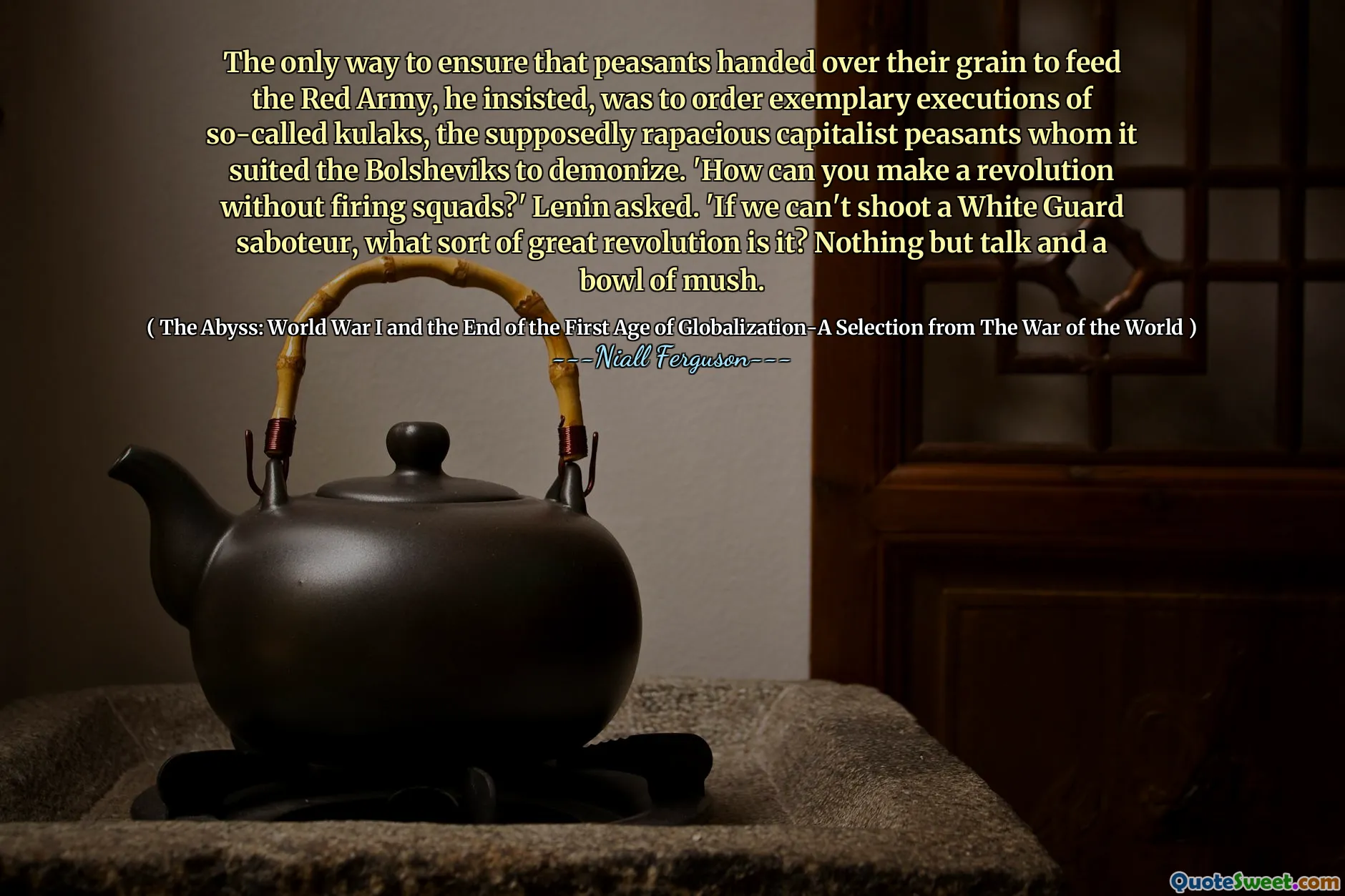
The only way to ensure that peasants handed over their grain to feed the Red Army, he insisted, was to order exemplary executions of so-called kulaks, the supposedly rapacious capitalist peasants whom it suited the Bolsheviks to demonize. 'How can you make a revolution without firing squads?' Lenin asked. 'If we can't shoot a White Guard saboteur, what sort of great revolution is it? Nothing but talk and a bowl of mush.
Lenin believed that extreme measures were necessary to compel peasants to supply grain for the Red Army during the revolutionary period. He argued that demonstrating power through the execution of kulaks, whom the Bolsheviks portrayed as greedy and exploitative, was essential. Lenin's philosophy was that a revolution could not merely rely on rhetoric; it required the willingness to use violence against perceived enemies, particularly those labeled as counter-revolutionaries like the White Guards.
This ruthless approach reflected Lenin's view that without enforcing fear through executions and other harsh tactics, any revolutionary movement would lack substance and impact. He emphasized that without decisive actions, the revolution would be reduced to empty words and would fail to achieve its transformative goals. This perspective illustrates the brutal realities of revolutionary politics and the lengths to which leaders might go to maintain control and instigate change.











